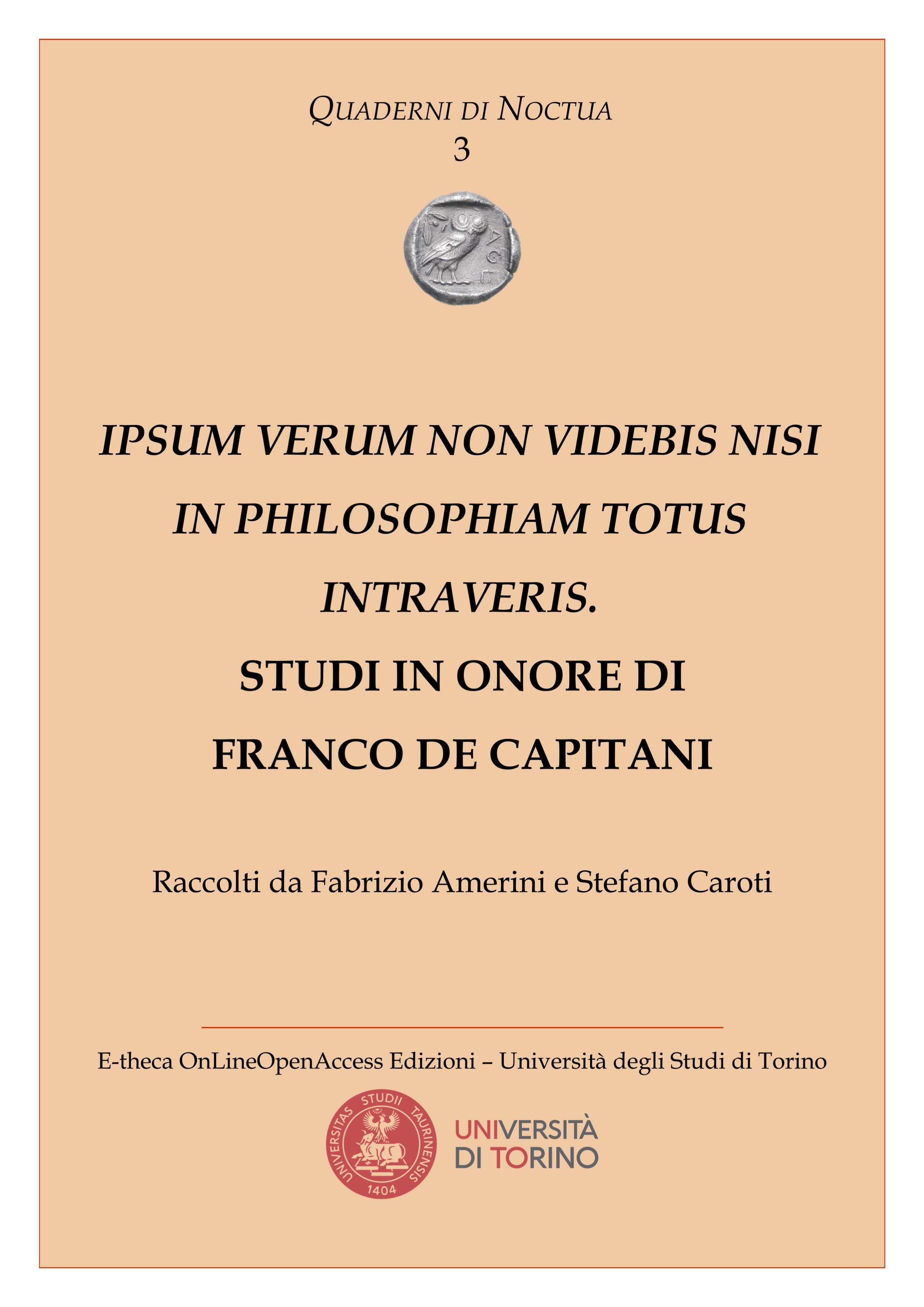Influenze agostiniane nel «si Deus ipse non esset» di Gregorio da Rimini
DOI:
https://doi.org/10.14640/QuadernidiNoctua3-11Keywords:
Gregory of Rimini, God, ‘etiamsi Deus non daretur’ argument, AugustineAbstract
Among the medieval sources cited in early-modern philosophical and religious works, Gregory of Rimini (c. 1300–1358) appears more than once as the authoritative progenitor of doctrines that have consolidated over time. This can be said of the ‘etiamsi Deus non daretur’ argument, used, among others, by Hugo Grotius and Francisco Suárez, of which in this article we intend to verify the correctness of attribution to Gregory and the relevance of the connection with his ‘si Deus ipse non esset’. This verification is carried out by means of an analysis of the Augustinian influences of Gregory’s positions: it is shown that of the various ‘etiamsi Deus non daretur’ arguments that Western culture would have known and experienced, Gregory’s ‘si Deus ipse non esset’ can be considered mostly as an anticipation of a formula, whose content and meaning, precisely because of the philosophical-moral framework and the Augustinian theological inspiration in which it was expressed, were very different from those that the authors of the following centuries would have attributed to it.
Downloads
Published
Issue
Section
License
Copyright (c) 2016 Onorato Grassi

This work is licensed under a Creative Commons Attribution 4.0 International License.
Noctua pubblica contributi Diamond Open Access secondo i termini della licenza CC BY / Noctua publishes Diamond Open Access contributions under the terms of the CC BY license.






